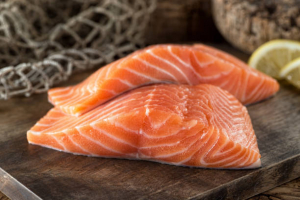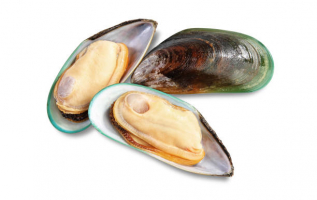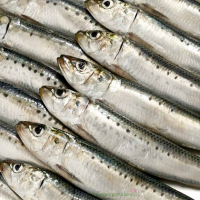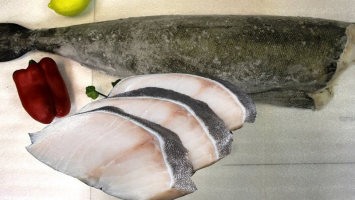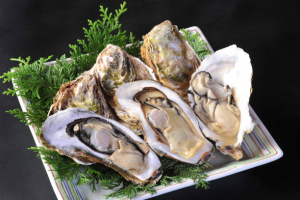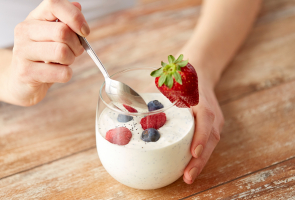Top 7 Health Benefits of Eating Halibut
Halibut is a flatfish belonging to the Pleuronectidae family. These fish have a flattened, diamond-shaped body and move horizontally. They are also right-eyed, ... read more...which means their eyes are on the upper side of their body. The halibut has microscopic scales buried under its skin, giving it a smooth appearance. Halibut, with its solid structure and huge flakes, cooks nicely as a fillet or steak and can withstand cooking methods such as grilling, frying, and pan-searing. Let's discover the best health benefits of Halibut.
-
Halibut is high in selenium, a trace mineral with several health advantages that your body needs in little doses. The suggested serving size of halibut is a cooked half-filet (160 grams), which delivers more than 100 percent of your daily nutritional needs. Selenium is a potent antioxidant that aids in the healing of damaged cells and can reduce inflammation. It also has a significant impact on thyroid function.
Niacin promotes heart health and may possibly help avoid heart disease. It can help shield your skin from UV rays. A half-filet (160 grams) of halibut meets 57% of your daily requirements. Phosphorus, the second most prevalent mineral in your body, aids in bone formation, metabolic regulation, heart rhythm regulation, and other functions. A serving of halibut meets 45 percent of your daily nutritional requirements. Phosphorus, the second most prevalent mineral in your body, aids in bone formation, metabolic regulation, heart rhythm regulation, and other functions. A serving of halibut meets 45 percent of your daily nutritional requirements.

Rich in Micronutrients 
Rich in Micronutrients -
One serving of cooked halibut has 42 grams of high-quality protein, which can help you fulfill your daily protein requirements. Protein has a dietary reference intake (DRI) of 0.36 grams per pound or 0.8 grams per kilogram of body weight. This will fulfill the needs of 97-98 percent of healthy, sedentary persons. It should be noted that this amount is essential to avoid insufficiency. Protein requirements might be increased by your amount of exercise, muscle mass, and current condition of health.
Protein is composed of amino acids, which participate in nearly every metabolic function in the body. As a result, consuming adequate protein is critical for a variety of reasons. It can help with muscle building and repair, hunger suppression, weight loss, and other benefits. High-quality, complete proteins are found in fish and other animal proteins. That is, they supply all of the necessary amino acids that your body cannot produce on its own.

Good Source of High-Quality Protein 
Good Source of High-Quality Protein -
Heart disease is the top cause of mortality in both men and women throughout the world. Halibut provides a number of heart-healthy elements, including omega-3 fatty acids, niacin, selenium, and magnesium. While there is no DRI for omega-3 fatty acids, the adult Adequate Intake (AI) guideline for women and men is 1.1 and 1.6 grams, respectively. A half-filet of halibut contains around 1.1 grams of omega-3 fatty acids. Omega-3 fatty acids provide significant cardiovascular health benefits.
They can help decrease triglycerides, boost "good" HDL cholesterol, avoid blood clots, and control high blood pressure. Niacin, often known as vitamin B3, can help lower cholesterol and triglycerides. Furthermore, halibut's high selenium level lowers your risk of heart disease by lowering oxidative stress, inflammation, and the formation of "bad" LDL cholesterol in your arteries. Finally, research suggests that increasing your magnesium intake may help reduce your blood pressure.

Good for Your Heart 
Good for Your Heart -
While inflammation can be beneficial to your body at times, prolonged low-grade inflammation can be harmful to your health. The selenium, niacin, and omega-3 fatty acids found in halibut can help lessen the detrimental consequences of chronic inflammation. One plate of halibut provides 106 percent of your daily selenium requirements. This potent antioxidant aids in the reduction of oxidative stress in the body.
According to research, increasing selenium blood levels strengthen your immune response, whilst a lack might harm immune cells and their function. Niacin and omega-3 fatty acids also help to reduce inflammation. Niacin is involved in the production of histamine, which aids in the dilation of blood vessels and the improvement of blood flow. Furthermore, studies have consistently proven a relationship between omega-3 fatty acid consumption and lower levels of inflammation. Fatty acids, such as cytokines and eicosanoids, can diminish chemicals and substances that lead to inflammation.

Helps Fight Inflammation 
Helps Fight Inflammation -
Cell regeneration and repair are vital for good health; halibut includes a lot of critical amino acids that encourage protein production. This aids in the formation of cells as well as their health. Aside from that, proteins aid in the formation of nails, hair, and skin. Blood and skin cells are only viable for a few weeks. This implies that the body must devise a method to replenish the cells that are destroyed. Halibut's protein content assists in the production of these new cells. Halibut also includes vitamin B12, which is necessary for cell health. It is essential for several processes, including the creation, repair, and preservation of red blood cells.
Halibut is high in omega-3 fatty acids, particularly DHA and EPA. These are the necessary fatty acids that the body cannot manufacture on its own. As a result, you must seek out external supplies of these fatty acids in order to maintain your body healthy. These nutrients have a protective impact on the body. This is especially true when it comes to the cardiovascular system. They aid in the prevention of excessive blood pressure, irregular cardiac rhythms, and other related diseases. They can also increase the body's LDL to HDL ratio and help minimize the risk of stroke.

Maintain Cellular Health and Contain Healthy Omega-3 Fatty Acids 
Maintain Cellular Health and Contain Healthy Omega-3 Fatty Acids -
Halibut is high in vitamin B3, an important vitamin that is beneficial to the body. The vitamin promotes neurological function, digestion, and hunger. It also contributes to bright skin. Consuming a lot of vitamin B3 can also reduce LDL cholesterol levels while boosting HDL cholesterol levels. This helps to keep the artery walls from hardening and worsening the problem. Halibut also includes pyridoxine, which is essential for immune system function. This vitamin helps to keep the body healthy by preventing the onset of illnesses. Halibut is also high in immune-boosting minerals. Potassium, selenium, niacin, vitamin B6, and other nutrients are among them.
Phosphorus is another component found in halibut. This is particularly significant since it helps to avoid weariness, muscular weakness, and numbness. Consuming this fish on a daily basis might help you maintain a healthy and active lifestyle. Phosphorus can also aid with sexual problems. These include libido loss, impotence, sperm motility, and coldness.

Support Digestion and Relieve Muscle Problem 
Support Digestion and Relieve Muscle Problem -
The nutrient-dense fish is particularly high in potassium, which plays an important role in brain function. Potassium is a desirable vitamin because it improves brain processes such as learning and memory. If the body does not have enough potassium, it can cause significant consequences such as epilepsy and other problems. Potassium currents are necessary for the body because they are required by neurons to maintain brain activities.
Another helpful ingredient found in halibut is selenium. Selenium, in particular, aids in the health of the liver. The liver is a vital organ since it is in charge of cleaning and detoxifying the body. As a result, it must remain healthy. Selenium is also an excellent antioxidant. This is why it is essential for preserving liver health. As a result, the body would be free of potentially dangerous components and metals. Apart from liver health, selenium also protects against heart disease and some forms of cancer.
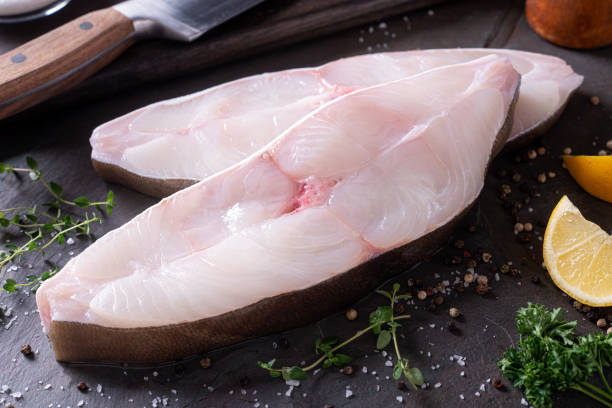
Promote Brain Health and Keep Liver Healthy 
Promote Brain Health and Keep Liver Healthy










